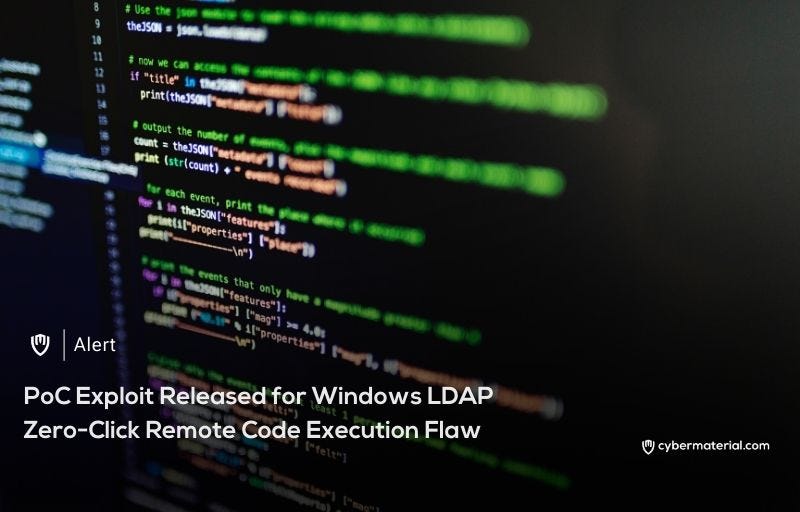
A critical vulnerability in Windows LDAP (CVE-2024-49112) has been disclosed, revealing a remote code execution (RCE) flaw that affects Windows servers, particularly Domain Controllers (DCs). This vu…

A critical vulnerability in Windows LDAP (CVE-2024-49112) has been disclosed, revealing a remote code execution (RCE) flaw that affects Windows servers, particularly Domain Controllers (DCs). This vu…